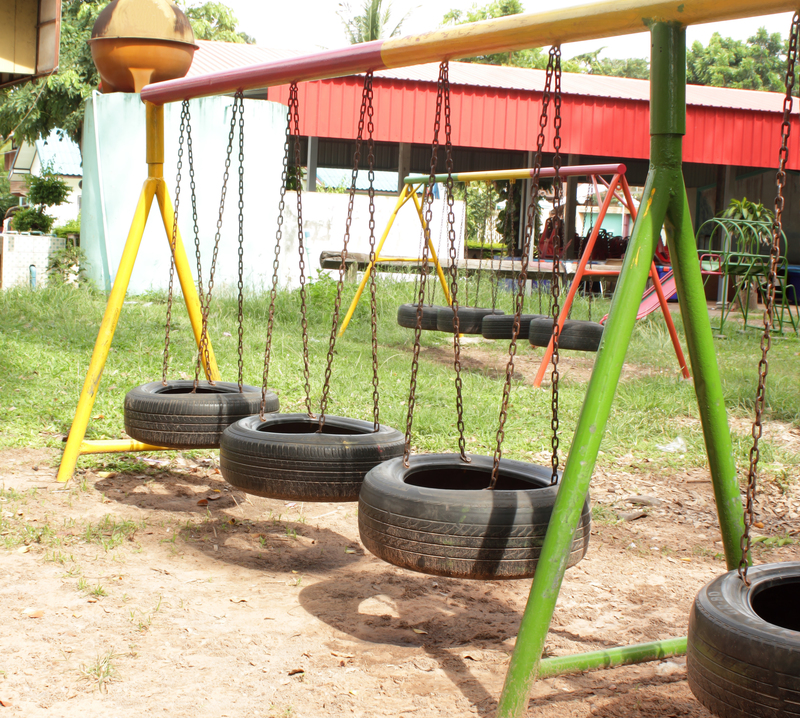Experience the Calm of a Decluttered and Minimalist Life
Are you feeling overwhelmed by the constant chaos of everyday living? You're not alone. In a world full of distractions, clutter, and relentless busyness, a growing number of people are seeking the tranquility of a minimalist and decluttered lifestyle. Imagine waking up to a space that radiates simplicity, organization, and calm--a place where every item has a purpose and meaning. In this article, we will guide you on how to embark on the journey of embracing minimalism, reveal the multitude of benefits, and provide practical strategies to create a serene, clutter-free life that lets you truly enjoy each day.
What Does It Mean to Live Minimally?
Minimalism is often misunderstood as simply "getting rid of stuff," but it's much more profound than that. At its core, minimalist living is about consciously curating both your physical and mental spaces so that you can focus on what truly matters. It's learning to distinguish between wants and needs and making intentional choices to support your well-being and happiness.
- Quality over quantity: Choose fewer, well-made items that add value to your life.
- Purposeful living: Surround yourself only with things, people, and experiences that align with your personal goals and values.
- Intentional spaces: Design your environment to reduce stress and foster calm.
Why Embrace Minimalism and Decluttering?
Decluttering and minimalist living can have a significant impact not just on your physical surroundings, but also on your mental and emotional health. Here are just a few compelling reasons to experience the peace of a minimalist life:
- Reduced stress and anxiety: Clutter bombards our minds with excessive stimuli, leading to anxiety and fatigue. A minimalist home, in contrast, soothes the mind and fosters relaxation.
- More time and energy: With fewer possessions, cleaning and organizing take less time, giving you more moments to enjoy activities you love.
- Financial freedom: When you buy less, you save more. Minimalist living naturally encourages mindful spending and helps you break free from consumer debt.
- Increased focus: An uncluttered space has fewer distractions, allowing you to concentrate on your priorities and personal growth.
- Environmental impact: Owning less and buying thoughtfully helps reduce your ecological footprint, supporting a more sustainable world.
How to Start Your Minimalist Journey
Taking the first step toward a calm and decluttered lifestyle can feel daunting, but it doesn't have to be an overwhelming process. Here are actionable strategies to help you start:
1. Set Clear Intentions and Define Your Why
Before you begin downsizing your belongings, take a moment to reflect on your motivations. Ask yourself:
- What do I hope to gain from a minimalist lifestyle?
- How will a decluttered home affect my mood, focus, and well-being?
- What are the personal values I want my space to reflect?
Having a clear purpose will keep you motivated when the process gets tough.
2. Start Small and Build Momentum
Decluttering your entire home can seem intimidating, so start with a single area--perhaps a drawer, shelf, or small closet. Once you feel the difference, you'll find it easier to tackle larger spaces. Remember, minimalism is a journey, not a destination.
- Use the "one in, one out" rule: For every new item you bring home, let go of something you no longer need.
- Sort by category: Focus on clothes first, then books, paperwork, and finally sentimental items--mirroring the popular KonMari method.
3. Assess Each Item's Value
Hold each item and evaluate its purpose and impact on your life. Ask yourself:
- Does this item bring me joy or serve a useful function?
- When did I last use it?
- Would I buy it again?
Let go of possessions that no longer serve you. Donate, recycle, or gift them so they can find new life elsewhere.
4. Organize for Simplicity
Decluttering isn't just about less, but about organizing what remains so it serves you best. Create dedicated places for each item. Use storage solutions that are simple and accessible so you maintain the peace and order you've created.
5. Adopt Minimalist Habits
- Practice mindful consumption: Ask yourself if each purchase is meaningful and practical.
- Declutter regularly: Make it a habit to review your possessions every few months to prevent buildup.
- Prioritize experience over things: Spend time and resources on experiences rather than accumulating more stuff.

The Emotional and Psychological Benefits of Decluttering
Beyond the aesthetic appeal, living a minimalist and decluttered life can profoundly transform your mind and emotions. Here's how:
- Greater clarity: Physical clutter often translates to mental clutter. A tidy, minimalist space can spark creativity and clear thinking.
- Deeper gratitude: When you surround yourself with fewer, meaningful objects, you naturally appreciate what you have more deeply.
- Enhanced relationships: A decluttered home is more inviting, making it simpler to host, connect, and celebrate with loved ones.
- More restful sleep: Research suggests that a clutter-free bedroom can significantly improve sleep quality, helping you wake up refreshed and calm.
Tips for Maintaining a Minimalist and Calm Home
Once you've created your haven of peace, consistency is key. Here are some practical tips to protect your calm, minimalist lifestyle long-term:
- Practice daily "mini-tidies": Devote five to ten minutes each day to return items to their designated spots.
- Have "no-clutter" zones: Identify areas where you never allow miscellaneous items to accumulate, like your dining table or entryway.
- Celebrate empty spaces: Embrace and appreciate simplicity instead of feeling the urge to fill every nook and cranny.
Minimalist Living for Families
It's a common misconception that minimalist and decluttered living is only attainable for singles or couples. In truth, families can thrive in minimalist homes--with a little creativity and teamwork. Here's how:
- Get everyone involved: Let children participate in decluttering. Teach them to value what they have and to mindfully let go of what they outgrow or don't use.
- Create simple systems: Label storage bins, use open shelves, and establish routines for tidying up together.
- Focus on shared experiences: Plan family outings, game nights, or nature walks instead of accumulating more toys and gadgets.
Decluttering Digital Life: The New Frontier
Modern minimalism goes well beyond physical possessions. Digital clutter--unused apps, overflowing email inboxes, endless notifications--can be just as overwhelming.
- Unsubscribe from unnecessary emails and newsletters that you never read.
- Organize digital files and photos into clearly labeled folders to avoid overwhelm.
- Limit your screen time and detox your social media feeds by following only accounts that inspire or inform you.
Creating calm in your digital environment translates into more focus, creativity, and peace in your offline life too.
The Science Behind Minimalist and Decluttered Environments
Studies consistently show that tidy, organized environments contribute to overall well-being in several ways:
- Lower cortisol levels: Clutter leads to elevated stress hormones, which can affect your health negatively.
- Improved productivity: An uncluttered workspace increases efficiency and helps you stay on task.
- Better mental health: A decluttered home can reduce depression and anxiety, nurturing a calmer mindset.
When you take deliberate steps to reduce clutter and embrace minimalist principles, you're not just creating a beautiful home--you're investing in your happiness and mental health.
Common Myths About Decluttering and Minimalism
- Minimalism is about living with nothing. -- Not true! It's about intentionality, not deprivation. Minimalists own what they need and love, nothing more or less.
- It's expensive to become a minimalist. -- False! You save money by buying less and releasing what no longer serves you.
- Decluttering means you can't be sentimental. -- On the contrary, minimalism helps you appreciate your most meaningful treasures by letting go of the rest.

Frequently Asked Questions on Decluttered and Minimalist Life
- How do I start if I feel attached to my possessions?
Start with non-sentimental items. As you build confidence, letting go becomes less emotional. Keep a box for items you're unsure about, and revisit it in a few months. - Can I practice minimalism if I live in a small apartment?
Absolutely! In fact, minimalist living is ideal for small spaces. Focus on multi-functional items and creative storage solutions. - What do I do with the items I no longer need?
Donate, recycle, sell, or give them away. Many charities and community centers gladly accept gently used goods. - How do I maintain a minimalist space with kids or pets?
Involve your family, use baskets and bins, and establish routines. Minimalism is about flexibility and persistence, not perfection.
Minimalism as a Lifelong Journey
Minimalism is not a one-time project--it's a continuous lifestyle shift that grows and evolves with you. You'll discover that as your seasons of life change, so do your needs and your definition of "enough." What remains constant is the sense of calm, balance, and purpose that comes from a decluttered and minimalist way of life.
Final Thoughts: Discover Lasting Calm with a Minimalist Life
Experiencing the serenity of a decluttered and minimalist life is more accessible than ever. By making mindful choices, letting go of excess, and focusing on what matters most, you'll create an environment and mindset that nurtures joy, clarity, and peace. Begin your journey today, and relish the freedom that comes from less--so you can experience and celebrate more.
Ready to declutter for calm? Start small, stay intentional, and notice how each step brings you closer to the life you've always wanted--simple, peaceful, and full of meaning.